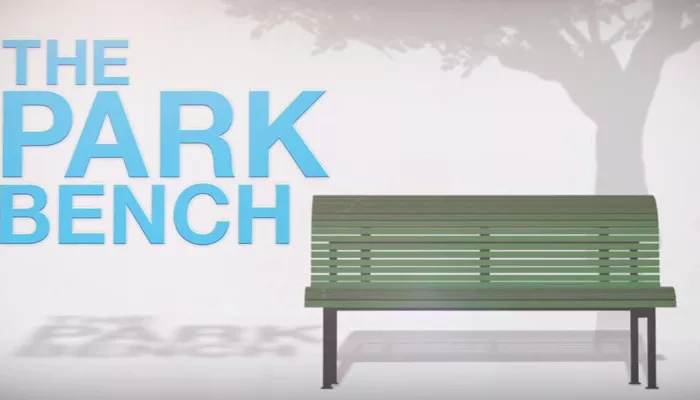Welcome to Poem of the Day – The Park Bench by Sakutaro Hagiwara.
Sakutaro Hagiwara’s poem “The Park Bench” offers a poignant exploration of loneliness, internal conflict, and existential reflection. The poem presents a speaker who, while lying on a park bench, finds himself surrounded by emptiness, both in the physical world around him and in the mental landscape of his mind. This meditative moment captures the internal chaos that haunts the speaker as he contemplates the persistence of unresolved thoughts and emotions. Through this simple yet powerful setting, Hagiwara explores deep psychological and existential themes that reveal the fragility of the human condition.
The Park Bench Poem
I laid back on the park bench where no one was around,
And again today my thoughts turn furious.
Why do they at my hometown, never relent
From grinding the sour-plum’s pit in my teeth?
In Echigo, afar, sparkling snow caps the mountains no doubt,
And the wheats too must surely cower before one’s wrath.
The voices that mock me fill the moons and hills,
And the anguished cry explodes my heart.
They’re all alike.
Sever the attachment to those heartless ones.
O, kick off and leave the soil the homeland of my birth.
I take a pen-knife whetted sharp to my finger,
and when the cherries switch to leaves,
I carve the word “Revenge” on the lonely bench.
The Park Bench Poem Explanation
The park bench in Hagiwara’s poem becomes more than just a physical location; it symbolizes a place of isolation and detachment. The image of lying back on a park bench “where no one was around” immediately conveys a sense of solitude. The speaker is alone, physically detached from the hustle and bustle of the world, which allows him to turn inward. The emptiness of the surrounding space mirrors his emotional and psychological emptiness, suggesting that the speaker has been abandoned or is disconnected from others, further accentuating his sense of isolation.
The park bench, typically a public space intended for relaxation and contemplation, contrasts sharply with the speaker’s experience of internal unrest. This juxtaposition between the external calmness of the park and the speaker’s internal turbulence highlights the dissonance between the outer world and the inner world. The poet uses this space not as a tranquil retreat, but as a stage for inner turmoil.
The Furious Thoughts: A Struggle with the Mind
As the speaker lies on the bench, he notes that “again today my thoughts turn furious.” The adjective “furious” is particularly striking here, as it conveys a sense of uncontrollable anger or turmoil within the speaker’s mind. It suggests that these thoughts are not just random musings but are intense, overwhelming, and perhaps even destructive. The repeated phrase “again today” implies that this mental struggle is a recurring issue, a cycle the speaker cannot escape from. It suggests that this inner fury is a constant presence in his life, one that continues to trouble him without resolution.
This inner turmoil may be interpreted as a manifestation of deeper existential concerns or emotional pain. The speaker’s fury could stem from a variety of sources—feelings of alienation, dissatisfaction with his life or circumstances, or an ongoing search for meaning. The phrase could also symbolize the emotional and psychological toll that living in a disconnected society can have on an individual. Hagiwara’s use of “fury” emphasizes the intensity of this emotional burden, portraying the mind as a battleground where peace and clarity are hard to find.
The Unrelenting Past: A Question of Hometown and Memory
In the latter part of the poem, the speaker laments, “Why do they at my hometown, never relent.” Here, the speaker’s thoughts seem to shift from the personal fury he experiences in the present to a more profound reflection on the past. The use of “hometown” evokes a sense of nostalgia, but it is not a fond reminiscence. Instead, the speaker’s question implies that his hometown—perhaps the place of his origins or formative experiences—continues to haunt him in a way that is unforgiving and relentless. This “relentless” nature of the past suggests that the speaker is unable to move on from his history, and that the emotional and psychological baggage of his past is constantly weighing on him, refusing to let him go.
This passage can be interpreted as a commentary on the inescapability of one’s roots and memories. For the speaker, his hometown is not a sanctuary of comfort but a source of perpetual torment. The question “Why do they never relent?” indicates the speaker’s frustration with this unyielding hold the past has on him. It suggests that, no matter how much he may try to free himself from it, his past continues to shape his present, trapping him in a cycle of unresolved emotions and thoughts.
Conclusion
“The Park Bench” is a powerful meditation on the inner struggles that define the human condition. Through the simple setting of a park bench, Hagiwara paints a vivid picture of the emotional and psychological turmoil of the speaker. The contrast between the peaceful park and the speaker’s chaotic thoughts underscores the dissonance between external calm and internal unrest. The speaker’s fury, the torment of his past, and the isolation he feels all reflect a deeper yearning for peace and resolution that remains elusive.
In many ways, the poem captures the feeling of being trapped in one’s own mind, unable to escape the clutches of past memories and unresolved emotions. It speaks to the universal experience of loneliness, existential questioning, and the struggle for personal peace. By turning the park bench into a metaphorical space for contemplation and inner conflict, Hagiwara crafts a work that invites readers to reflect on their own relationship with solitude, memory, and the often uncontrollable nature of their thoughts.

